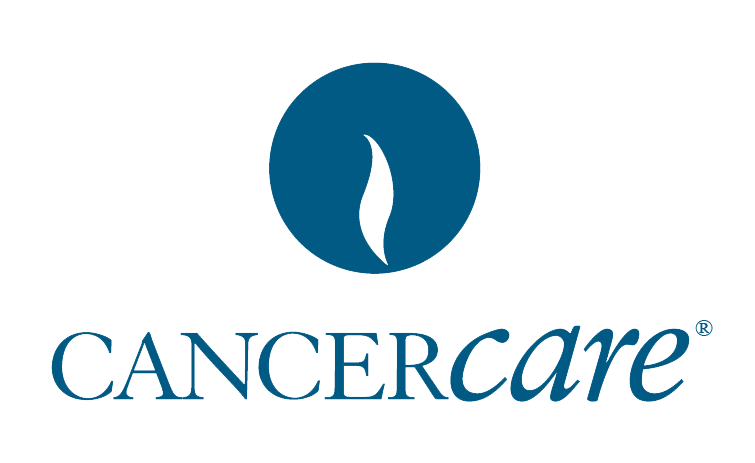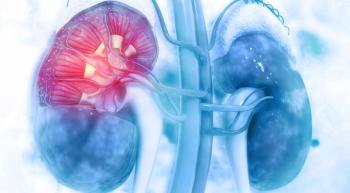
4 Ways to Help Patients With Metastatic Lung Cancer Find Meaning in Their Experiences

Oncology nurses can help patients with metastatic lung cancer find meaning in their experiences and potentially help them cope more effectively with their diagnosis.
Patients with metastatic lung cancer now work to navigate the changing world of living with a treatable, albeit not curable, chronic illness.1,2,3
Lung cancer diagnoses can bring a host of emotional reactions and changes to daily life.4 A new cancer diagnosis can evoke trauma responses and fear of treatment side effects. Patients with lung cancer may also face stigmatization. While there are psychosocial interventions to reduce internalized stigma in these patients, many will find themselves repeatedly explaining their smoking history, figuring out ways to mitigate judgement from others, or feeling as though they are failing to live up to societal expectations.5 In light of stigma and COVID-19 concerns, these patients may turn to treatment centers—or oncology nurses especially—for increased support.
Hospitals and treatment centers are poised to support people with metastatic lung cancer diagnoses during treatment, and health-care workers at these institutions have an opportunity to utilize meaning-making tools during treatment.6 Nurses are uniquely positioned to see patients during longer stretches of time during infusions, and shorter, more periodic stretches when patients take a daily pill. Utilizing meaning-making techniques can assist in mitigating patient distress, and increase positive mood in patients.7
1. Shift Away From Using “War” Metaphors When Speaking About Cancer
Nurses are in a unique position to shift the language that patients use and what their experience means to them. Meaning-making in metastatic lung cancer can be as simple as changing the language patients use to refer to their diagnosis. Language used about cancer often includes words like “war,” “battle,” or “beat,” which then implies negative connotations for patients with disease. Binary language of “fighting” vs “giving up,” or “winning” vs “losing” can exacerbate difficulties in processing a metastatic diagnosis as something other than ‘winning’ or ‘losing.’8
Some better, alternative illness metaphors might include viewing the cancer diagnosis as a new part of an existing self or as a new job that requires effort and collaboration. As treatments expand life expectancy and improve quality of life, understanding that there can be continued passion and enthusiasm for life following a new diagnosis is essential. Having nurses be aware of their own perception of metastatic lung cancer is important, as they are a front-line resource to patients navigating their own life changes.
2. Seek to Understand the Patient’s Cultural Context
While some cultures encourage coping strategies that are more easily accessible, such as spirituality or religion, individuals may have to break away from cultural norms to find their own meaning with their diagnosis. Similarly, in an individualistic culture that prioritizes work ethic, productivity, and independence, it can be difficult for patients to ask for support, lean on others, or allow themselves to rest.
Recognizing cultural differences allows patients to explore their own meaning-making techniques without guilt at cultural differences.9 Some patients may find a sense of calm and utility in continuing their daily activities such as work. Other individuals may find strength in nature and positive solitude. Nurses must practice cultural humility in learning about the patients is handling their diagnosis, as well as if it is something the family is comfortable talking about, or if illness is seen as something that brings caregivers and families together.
3. Encourage Patients to Share Their Goals
Patients who continue participating in the activities they enjoyed before cancer are often engaging in activities that bring them joy. However, sometimes these activities may conflict with treatments schedules and patients may not be aware of opportunities for more flexible scheduling or alternative treatment options.
When the patient shares their goals for work, travel, or other events, their health care team can better advocate for their patient’s values.10 Studies have indicated that over 70% of patients with cancer have a social or relationship goals, and nearly 70% of patients have a leisure goal they want to achieve.10 Patients who are able to exert some form of control over their activities are often able to better cope with the loss of control that comes from a cancer diagnosis.11 Patients often initially grieve the loss of normalcy and activities they were easily able to do prior to diagnosis and treatment. Encouraging patients to make treatment fit into the parts of their life they enjoyed prior to cancer allows for a richer meaning in their lives.
4. Explore Legacy-Building Activities in the Treatment Center
Nurses are uniquely positioned to hear patient stories. One example of legacy building is dignity therapy,12 which includes asking several questions that help provide patients with the opportunity to place cancer in a larger context of their life’s story. An 8-question protocol lists these questions for patients nearing the end of their life.13 Tailoring some questions to be asked as part of patient assessment can lend patients support in the medical session.
- Tell me a little about your life history, particularly the parts that you either remember most or think are the most important? When did you feel most alive?
- Are there specific things that you would want your family to know about you, and are there particular things you would want them to remember?
- What are the most important roles you have played in life (family roles, vocational roles, community-service roles, etc.)? Why were they so important to you, and what do you think you accomplished in those roles?
- What are your most important accomplishments, and what do you feel most proud of?
- Are there particular things that you feel still need to be said to your loved ones or things that you would want to take the time to say once again?
- What are your hopes and dreams for your loved ones?
- What have you learned about life that you would want to pass along to others? What advice or words of guidance would you wish to pass along to your (son, daughter, husband, wife, parents, other[s])?
- Are there words or perhaps even instructions that you would like to offer your family to help prepare them for the future? In creating this permanent record, are there other things that you would like included?
Using these techniques, oncology nurses can help patients with metastatic lung cancer find meaning in their experiences, helping patients cope more effectively with their diagnosis.
References
1. Huang J, Deng Y, Tin MS. Distribution, risk factors, and temporal trends for lung cancer incidence and mortality. Chest. 2022;161(4):1101–1111.
2. Heinrich CT, Stabbert S, Sanchez D, et al. Incidental metastatic lung cancer in a patient being treated for community-acquired pneumonia: the case for lung cancer screening in rural America. Cureus, 2023;15(4).
3. Tan AC, Tan DS. W. Targeted therapies for lung cancer patients with oncogenic driver molecular alterations. J Clin Oncol. 2022;40(6):611–625.
4. Bebb DG, Murray C, Giannopoulou A, Felip E. Symptoms and experiences with small cell lung cancer: A mixed methods study of patients and caregivers. Pulmonary Therapy. 2023.
5. Kaplan DM, Hamann HA, Price SN, et al. Developing an act-based intervention to address lung cancer stigma: Stakeholder recommendations and feasibility testing in two NCI-designated Cancer Centers. J Psychosoc Oncol. 2023;41(1):59–75.
6. Maloney KW. Seeking common ground: a grounded theory of the nurse-patient relationship in cancer infusion care. Published online March 7, 2023. Cancer Nurs. doi:10.1097/NCC.0000000000001215
7. Lee V, Cohen SR, Edgar L, et al. Meaning-making and psychologicaladjustment to cancer: development of an intervention and pilot results. Oncol. Nurs Forum. 2006;33(2):291–302. doi:10.1188/06.onf.291-302
8. Zuzelo PR. The subtext of war messaging in health care and its impact on the experience of illness. Holist Nurs Pract. 2023;37(2):113-114. doi:10.1097/HNP.0000000000000574
9. Ahmadi F, Tavares R, Matos PM, Tomás C, Ahmadi N. Secular existential meaning-making coping among cancer patients in Portugal: a qualitative study. Illness, Crisis & Loss, 2019;30(1):68–88.
10. Hyland KA, Oswald LB, Reblin M, et al. Goals and goal perceptions in patients with advanced stage lung cancer: a mixed methods study. Support Care Cancer. 2023;31(5):314. Published May 1, 2023. doi:10.1007/s00520-023-07745-z
11. Coyle N. The hard work of living in the face of death. J Pain Symptom Manage. 2006;32(3):266-274. doi:10.1016/j.jpainsymman.2006.04.003
12. Bluck S, Mroz EL, Wilkie DJ, et al. Quality of life for older cancer patients: relation of psychospiritual distress to meaning-making during dignity therapy. Am J Hosp Palliat Care. 2022;39(1):54-61. doi:10.1177/10499091211011712
13. Chochinov HM, Hack T, Hassard T, Kristjanson LJ, McClement S, Harlos M. Dignity therapy: a novel psychotherapeutic intervention for patients near the end of life. J Clin Oncol. 2005;23(24):5520-5525. doi:10.1200
Newsletter
Knowledge is power. Don’t miss the most recent breakthroughs in cancer care.





























































































